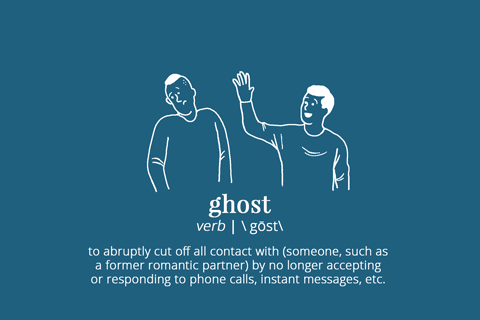Many people are under the illusion of transparency. They believe that all their sadness, emotions and despair are visible to the naked eye and that others are forced to guess them and capture their needs, but we are not always an open book and therefore, if we really need something, we have no choice: we must affirm ourselves.
This phenomenon may seem familiar. In fact, most of us have lived it in different ways. For example, when we speak in public, it’s common to say that “everyone sures see how nervous I am” when the public hasn’t actually noticed any difficulty speaking.
- “The illusion of transparency says that there are people who can believe that their internal states are obvious to others.
- That they are mirrors that perfectly show what is going on within them.
In addition, there are times when we go home after a bad day, a day like Murphy’s Law applies in all your statements, however, our partner, our family or the people around us can’t see in us a single brand, not a single one. nuance of this terrible day.
Not all of us are as transparent as we think, moreover, our inner worlds are not always television screens or mirrors that reflect the emotional chaos in which we sometimes find ourselves, however, the fact that we do not do not despair. Others have no obligation to examine our faces daily to “guess” whether we do it right or wrong.
Ideally and healthy, we are able to comment naturally: “but what a bad day I had today. “However, there are people who get angry and angry if others can’t read what’s going on, they magically see what concerns them. without having to communicate?
Carlos and Eva are going to celebrate their birthday tonight; They’ve been going out for two years and booked a table in a good restaurant, however, just as she leaves, Eva realizes that Carlos is getting into the bathroom too long, worried, knocking on the door and asks if everything’s going well. Seconds later, he leaves and says he doesn’t want to have dinner, he doesn’t want to.
Eva, worried, asks what’s going on. After much hesitation and unholy, her partner tells her that she doesn’t feel well, that she doesn’t have the courage to celebrate her birthday because he doesn’t think the relationship is going well, because she doesn’t understand anything about what’s happening to her. . Eva, perplexed, almost anxious, asks her what’s wrong with her. ” Things aren’t going well at work. Is it possible to get fired? I’ve been in a difficult situation for two days, and you haven’t even noticed. ?.
Eva’s answer after hearing this is simple: “But why didn’t you tell me?” This situation, however impressive, is more common than we think. Not only is there a clear communication problem here, there is a dangerous cognitive bias that leads us to believe that others can discern our emotional states by simply looking at us, as if we had a radar, a foolproof problem detector.
As the example, we have Carlos, a person who for several days has carried his concerns alone, with his clear illusion of transparency, was so aware of his emotional anguish that he assumed that his partner would see her too, and as much as we strive, it doesn’t always happen.
Not everyone gives clear clues about what is happening to them, and there are those who accumulate even more tension and anguish when they realize that others do not realize how much they do not read the origin of their misfortunes in their faces.
We know that empathy, nonverbal language, and the connection we have with the people we love allow us to notice other internal needs or realities that don’t need to be expressed in words, now, sometimes, can fail, and it can happen. for very different reasons.
You can read an emotion, but not an underlying problem. One may ask, “What’s going on with you?” and get a “nothing. “The illusion of transparency adds, in many cases, to the lack of communicative efficiency and emotional immaturity. They are Trojan horses that are often installed in affective relationships and must be handled with maturity.
It is important to note that everyone, to a greater or lesser degree, can apply the illusion of transparency in their daily life and in the most varied ways, when it comes to relationships is a common dynamic because, one way or another, “Do we need the other person to guess?”What’s going on with us, what’s missing and what do we need?
We want a union so intimate that we forget that love does not give psychic, mental or supernatural powers, we cannot guess everything that the other person thinks and feels, so we have to take into account those considerations.
To conclude, given that these situations may well be familiar to us, let us not hesitate to work on these aspects to reduce, as far as possible, this common cognitive bias, which is the illusion of transparency.

